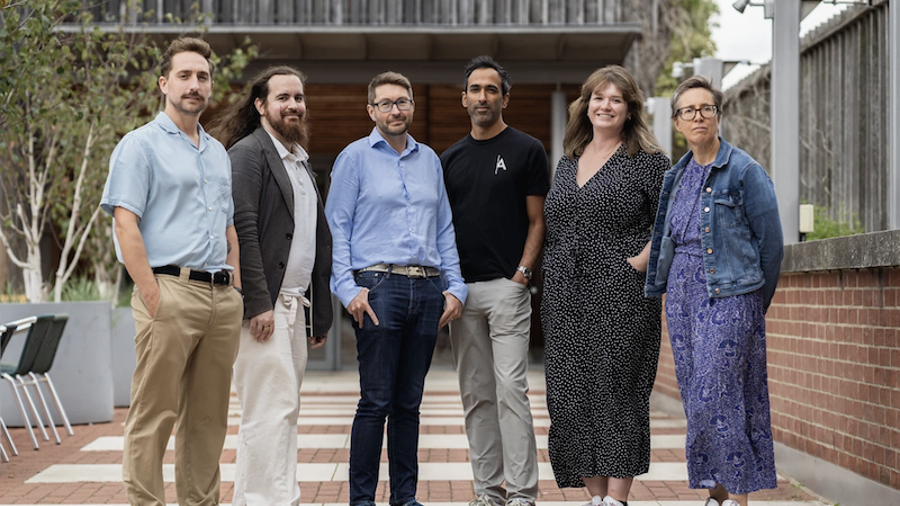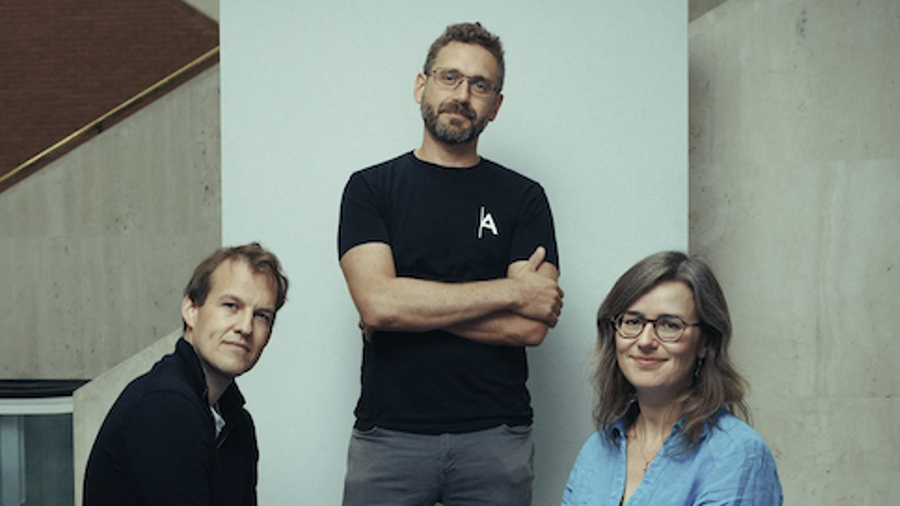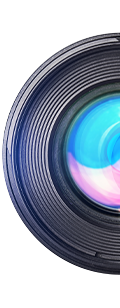
Scoping Our Planet
Opportunity seeds support ambitious research aligned to our opportunity spaces. We’re looking to challenge assumptions, open up new research paths, and provide steps towards new capabilities.
Can we fill gaps in Earth system measurement to respond confidently to the climate crisis?
From sensors that fingerprint methane emissions to measuring ocean mixing by combining seismic reflection + hydrographic data, we're funding an array of projects with up to £500k each, across individual research teams, universities and start ups to maximise the chance of breakthroughs.
Meet the Creators
WAVECLIM
Serge Guillas, University College London
Team: Christine Gommenginger, Ben Timmermans, + David McCann, National Oceanography Centre; Jack Dignan, University College London; Frederic Dias, ENS Paris-Saclay
Serge, Christine + team are collaborating on a project that builds on novel observations of coastal wave breaking, fitting a machine learning model to the input-output relationship and including this in a climate model. They highlight that while ocean wave breaking is a crucial process in the climate system, the area has been underserved because coastal seas are complex, diverse, and considered too small to influence the global climate. Characterising coastal wave breaking is challenging and observations are rare because these often harsh environments require specialised rugged sensor technology. This project seeks to better observe and model wave breaking at the coastline to determine its potential impact in global climate models.
“The topic is audacious because it challenges the idea that coastal-specific processes have negligible impacts on global scales. Outside ARIA, funding for audacious + risky research is scarce. ”
Unlocking Ground-Breaking Observations of Antarctic Mixing With Legacy Data
Kathryn Gunn, University of Southampton
Team: Bieito Fernández Castro, Alberto Naveira Garabato, + Alessandro Silvano, University of Southampton
Kathryn + team will combine seismic reflection with hydrographic data to assess the role of ocean mixing on Antarctic ice melt and sea level rise. The melting of Antarctic ice could raise global sea levels by up to 55 metres. While we know that ocean heat drives ice melt, the difficulty of consistently observing Antarctic waters has limited our understanding of how this process is regulated. In particular, the role of mixing – the stirring and blending of different water masses – remains largely unknown. One way to overcome this limitation is to use existing data in innovative ways. Kathryn + team’s vision is to tap into a 50-year dataset of circumpolar coverage, offering a new way to measure ocean mixing.
“I’m excited to keep pushing the boundaries of what we know about the ocean, especially around Antarctica. The opportunity space encourages bold, unconventional approaches, which perfectly aligns with our research. ”
Self-degrading Environmental Exploration Drones
Marc Phillipe Yves Desmulliez, Heriot-Watt University
Ignazio Maria + Marc aim to develop a groundbreaking swarm aerial sensing technology with high persistence and ad-hoc resolution and coverage, overcoming the limitations of existing technologies. Each flying sensor will consume itself as it operates and will fully bioresorb as the mission is completed. Compared to conventional drones, these insect-scale, passively-driven self-degrading sensors will offer zero noise and a greatly reduced risk of damage for sensitive ecosystems. Their vision is that the low impact, low cost, and high portability of these drones will enable the deployment of large swarms, resulting in unprecedented spatial resolution and coverage.
Photonics for portable isotopologue and ppt sensing
Peter Nisbet-Jones, Twin Paradox Labs + Christopher Bridges, University of Surrey
Team: Colin Chau, Twin Paradox Labs
Peter + Christopher are collaborating to combine radio hardware from mobile phones with Twin Paradox Labs’ digital laser system. The aim is to create the optics and electronics needed for NICE-OMHS spectroscopy in an ultra portable size, weight, and power format. The project’s successful completion should pave the way for sensors that can fingerprint methane emissions, yet also operate autonomously in the real world, not just in high-precision laboratories.
“Scoping Our Planet gives us a fantastic opportunity to build precision methane instruments – after all, you can’t change what you can’t measure.”
Distributed photovoltaic neural networks for environmental monitoring
Andrea Di Falco, University of St Andrews
Team: Marcello Ferrera, Heriot-Watt University; Claudio Conti, Università Sapienza; Mike Byrne, University of St Andrews
Andrea + team will focus on developing a technological platform based on machine learning that uses light from natural and artificial sources, and leverages newly installed and existing solar panel installations, for environmental monitoring. Their aim is to use this platform to explore cloud formation. Their vision is to tackle one of the key challenges in understanding cloud formation: the lack of a sufficiently dense network of sustainable, permanent and free-to-access sensors.
Antarctic explorations: where does glacial meltwater go?
Laura Cimoli, University of Cambridge
Karen Heywood, University of East Anglia; Alex Brearley + Kate Hendry, British Antarctic Survey
Laura + team are setting out to better understand how glacial meltwater is exported from the Antarctic glacial margins to the open ocean, as well as the consequences of such processes for local ocean circulation and biogeochemistry. Reducing uncertainty in future climate projections, such as global sea level rise, is one of the largest challenges facing the science community. Antarctica is currently losing ice mass, which contributes to sea level rise, but the processes are poorly understood. The Bellingshausen Sea in West Antarctica is particularly sparsely observed because it’s inaccessible and covered in sea ice for much of the year. However, new instrumented autonomous underwater vehicles are now available that enable cost-efficient and low-carbon measurement campaigns. This project will provide the means to gather new observations in the Bellingshausen Sea, a crucial pathway for glacial meltwater from the rapidly melting West Antarctic Peninsula.
“Scoping Our Planet will allow us to do hardcore research in one of the most extreme environments – the oceans around Antarctica – to observe never-before-explored regions. We’ll be able to gain much-needed information in a region that’s experiencing rapid + drastic climatic changes. ”
REMM: REthinking Methane Measurement
Jane Hodgkinson, Cranfield University
Nicholas Davis, Ralph P Tatam, + Stephen Staines, Cranfield University; Chiara Giorio, Olalekan Popoola, + Rod Jones, University of Cambridge; Thomas Karagiannis, Microsoft Research
Jane + team’s vision is to develop a low-cost solution to measure methane gas concentrations and fluxes in the agricultural sector and others, addressing the urgent need to reduce atmospheric methane concentrations for climate change mitigation. They aim to develop novel, fit-for-purpose instruments and technologies by bringing together world-leading atmospheric scientists, instrumentation engineers, and state-of-the-art data centre technologies. This new approach aims to fill a major technology gap and to disrupt the greenhouse gas measurement market, significantly lowering instrument costs and changing the narrative so that high-quality measurements no longer require expensive sensors and instrumentation.
Next-CAM
Ronald Clark, University of Oxford
Team: Ed Gryspeerdt, Imperial College London
Ronald + Ed are collaborating on the Next generation Cloud and Atmospheric Modelling using 3D vision (NextCAM) project. They’re aiming to develop advanced computer vision AI for creating detailed, real-time models of the sky from visible and infrared camera arrays. The ultimate goal is to develop a unified, high-resolution model of the atmosphere and cloud states, which will serve as a powerful tool for advancing atmospheric science.
“Bringing together this range of high-risk, high-reward projects is one of the first steps to solving one of the greatest challenges of our time: climate change.”
Persistent Monitoring of Climate Variables Using High Altitude Pseudo Satellites
Steve Tate, Voltitude
High Altitude Pseudo Satellites (HAPS) can offer a breakthrough in climate monitoring by providing accurate, regular measurements of Essential Climate Variables (ECVs) in high resolution over long periods. Focusing on high resolution in-situ observations of ECVs above remote tropical regions in the Upper Tropospheric and Lower Stratospheric (UTLS) region, Steve’s organisation offers a new type of solar-powered HAPS featuring an expanded flight envelope. This will make them less vulnerable to gusts and turbulence, while supporting high resolution ECV monitoring payloads to enable UTLS in-situ profiling. This project aims to validate the HAPS design performance through flight testing and simulations, culminating in a review to finalise the ECV monitoring mission plan and detail the design and performance of the proposed HAPS system configuration.
Clouds Decoded
Jacqueline Campbell, Asterisk Labs
Clouds Decoded is the first project undertaken by Jacqueline’s new research laboratory. Jacqueline sees enormous value in data sources that have long existed, but long been neglected: namely clouds, which are viewed by Earth observation scientists as an obstacle to be avoided or removed. However, the millions of cloudy images left to gather dust in the archive are, in fact, a goldmine of information. The goal of this project is to revolutionise our understanding of turbulence and phase heterogeneity in clouds in order to better understand the most pernicious and critical unknown in climate forecasts.
Being selected has allowed us to start a mission-driven, not-for-profit research organisation, operating in a way that’s entirely different from what would’ve been possible in a traditional academic or industry setting.
Rapid development of a mass-manufacturable SWIR hyperspectral camera
Sam Hornett, Living Optics
Team: Martin Hailstone, Living Optics
Sam, Martin, and the team at Living Optics are planning to provide a prototype platform for hyperspectral measurements in the short wave infrared (SWIR). Traditional hyperspectral imaging has typically come with a large price tag that limits the scale at which it can be reasonably deployed. Consequently, key climatic measurements suffer from issues in both resolution and frequency of measurement. The team plans to address this challenge by developing a platform that’s suitable for deployment at low cost in a form factor that is appropriate for drone mounting. The team will also demonstrate the applicability of this approach to snow/ice coverage and albedo measurements in the SWIR.
WAVECLIM
Serge Guillas, University College London
Team: Christine Gommenginger, Ben Timmermans, + David McCann, National Oceanography Centre; Jack Dignan, University College London; Frederic Dias, ENS Paris-Saclay
Serge, Christine + team are collaborating on a project that builds on novel observations of coastal wave breaking, fitting a machine learning model to the input-output relationship and including this in a climate model. They highlight that while ocean wave breaking is a crucial process in the climate system, the area has been underserved because coastal seas are complex, diverse, and considered too small to influence the global climate. Characterising coastal wave breaking is challenging and observations are rare because these often harsh environments require specialised rugged sensor technology. This project seeks to better observe and model wave breaking at the coastline to determine its potential impact in global climate models.
“The topic is audacious because it challenges the idea that coastal-specific processes have negligible impacts on global scales. Outside ARIA, funding for audacious + risky research is scarce. ”
Unlocking Ground-Breaking Observations of Antarctic Mixing With Legacy Data
Kathryn Gunn, University of Southampton
Team: Bieito Fernández Castro, Alberto Naveira Garabato, + Alessandro Silvano, University of Southampton
Kathryn + team will combine seismic reflection with hydrographic data to assess the role of ocean mixing on Antarctic ice melt and sea level rise. The melting of Antarctic ice could raise global sea levels by up to 55 metres. While we know that ocean heat drives ice melt, the difficulty of consistently observing Antarctic waters has limited our understanding of how this process is regulated. In particular, the role of mixing – the stirring and blending of different water masses – remains largely unknown. One way to overcome this limitation is to use existing data in innovative ways. Kathryn + team’s vision is to tap into a 50-year dataset of circumpolar coverage, offering a new way to measure ocean mixing.
“I’m excited to keep pushing the boundaries of what we know about the ocean, especially around Antarctica. The opportunity space encourages bold, unconventional approaches, which perfectly aligns with our research. ”
Meet the Programme Directors
Gemma Bale and Sarah Bohndiek are biomedical physicists working as co-Programme Directors. They both joined ARIA from the University of Cambridge, where Gemma continues to lead teams working on non-invasive brain monitoring, and Sarah in optical imaging technology for earlier cancer detection.

"Current Earth system measurements have serious gaps in coverage, resolution and sensitivity that lead to major uncertainties in climate forecasting. We believe that we can fill these gaps by breaking silos and harnessing technologies that are already impacting our daily lives, from the latest innovations in smartphone cameras and AI, to telecommunications optical fibres."
Gemma Bale + Sarah BohndiekProgramme DirectorFind out more
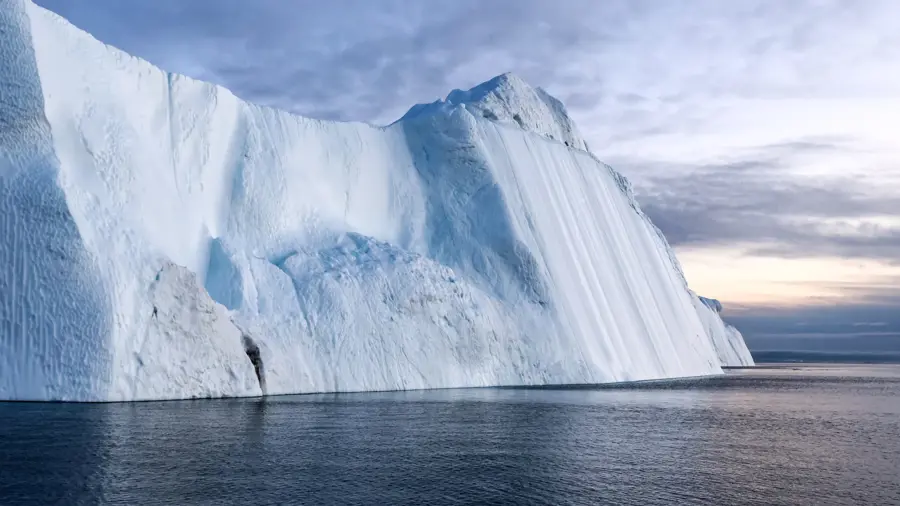
The UK is building an alarm for climate tipping points
MIT Technology Review
Read more
Engineers v Climate, with Sarah Bohndiek
The Naked Scientist Podcast
Listen now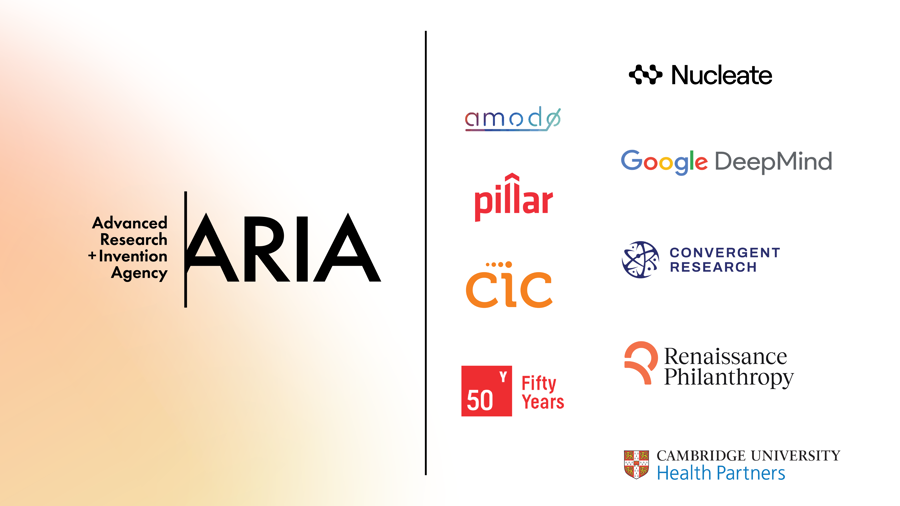
Meet our Activation Partners
Driving progress through science entrepreneurship
Read more